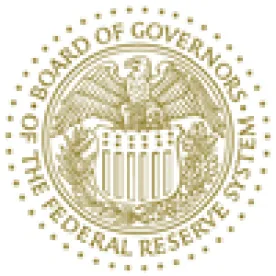This week the Federal Reserve (“the Fed”) issued guidance telling all banking organizations that it supervises (“Supervised Banks”) what they need to do before getting involved in any cryptocurrency related activities. Although this is a step in the right direction, for those craving clear guidance in this space, the Fed’s statements are somewhat vague and do little to define exactly what Supervised Banks must do. The Fed’s guidance also does not answer one of the biggest questions in this space – who is going to be the lead regulator of crypto?
The guidance dictates that Supervised Banks “must analyze the permissibility of such activities under relevant state and federal laws and determine whether any filings are required.” In other words, it looks like the Fed isn’t going to jump into the regulatory turf war that we’ve seen unfold between the SEC and CFTC, or tell you which laws are relevant. The Fed’s guidance essentially tells Supervised Banks that they should determine which laws are relevant and follow those laws.
This criticism might be a bit harsh as the Fed does note that the “emerging crypto-asset sector presents potential opportunities to banking organizations, their customers, and the overall financial system,” and recommend that Supervised Banks go to their “lead supervisory point of contact” at the Fed with any questions about the permissibility of crypto related activities. In other words, the Fed’s door is open and they are willing to “talk crypto” with Supervised Banks.
Additionally, the Fed does provide that there are certain risks that Supervised Banks and their compliance teams should be focused on. The Fed identifies the following risks:
-
Anti-money Laundering and countering of Terrorist Financing;
-
The limited transparency of some crypto-assets can make it difficult to identify and track ownership;
-
-
Consumer protection and legal compliance;
-
The potential for price volatility, misinformation, fraud, and theft or loss of assets;
-
Legal exposure from a variety of different issues including “the legal status of many crypto-assets;
-
-
Financial stability
-
Stablecoins could potentially pose a risk to financial stability through “destabilizing runs and disruptions in the payment systems”;
-
-
Legal Permissibility
-
Evaluate if the activity to ensure that it is not illegal and if filings are required under any federal banking laws.
-
Although the “letter does not address the legal permissibility of any specific crypto-asset-related-activity” it does suggest that crypto-asset-related-activities “may include, but are not limited to, crypto-asset safekeeping and traditional custody services; ancillary custody services; facilitation of customer purchases and sales of crypto-assets; loans collateralized by crypto-assets; and issuance and distribution of stablecoins.” This could encourage Supervised Banks to invest resources in these activities.
Finally, the Fed’s guidance is also telling Supervised Banks that they should notify the Fed if they are already participating in crypto-asset-related-activity or plan to do so in the future. Although this guidance may not provide absolute clarity for Supervised Banks, it does provide an opportunity for dialog with their regulator and can be seen as a different tact than other federal agencies have taken.
"A supervised banking organization should notify its lead supervisory point of contact at the Federal Reserve prior to engaging in any crypto-asset-related activity."
https://www.federalreserve.gov/supervisionreg/srletters/SR2206.htm





 />i
/>i

